By Rev Ed Veale, St Mark’s Mitcham
In March 2025, the Langham Preaching Africa team hosted a five-day workshop in Ghana for 28 key leaders from across the continent. From as far as South Africa to South Sudan, Liberia to Malawi, people travelled with eagerness to learn how to grow as ‘trainers of trainers’ (or ‘Facilitators’) in their contexts.
After meeting together virtually on zoom for the last two years, and having met in person twice, this gathering in Ghana was the climax of the training they have received.
The purpose of this workshop was to explore together how to best identify, recruit, finance and train sustainable, indigenous, local leaders. These leaders would then deliver the tried and tested Langham Preaching essential content to other local preachers.
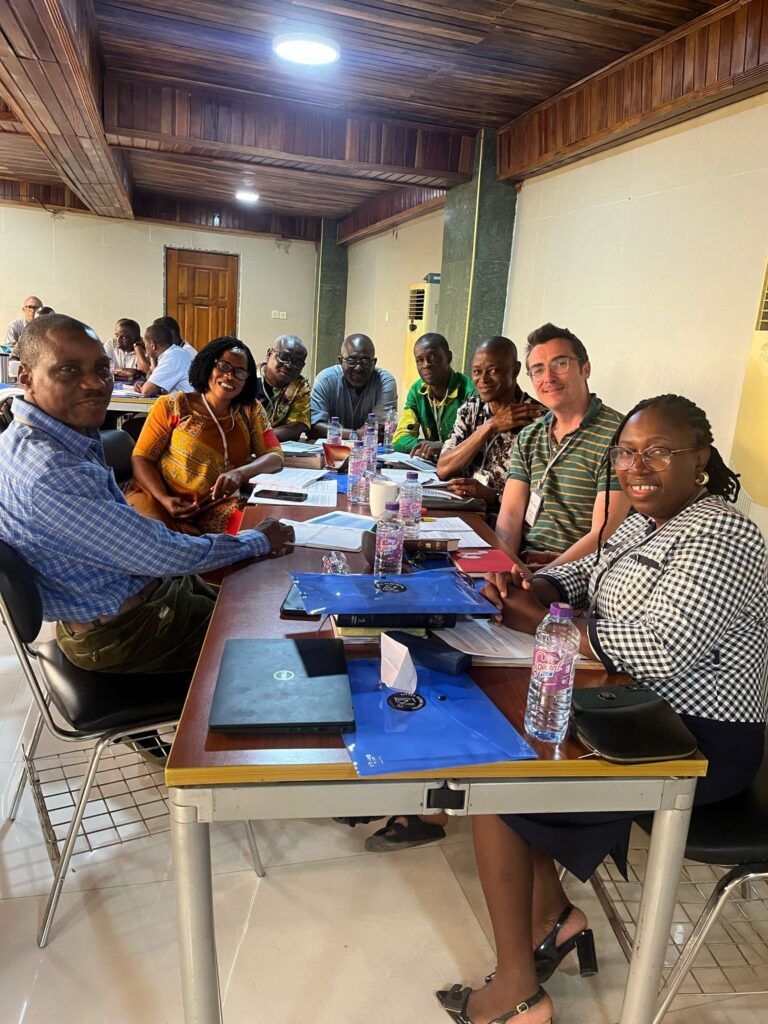
This content – over three levels – provides a theology, framework and practical learning on how a preacher can progress from a biblical text to a sermon that is full of the grace of Jesus Christ.
John Stott’s ‘Langham Logic’
This is based on the ‘Langham Logic’ that, as John Stott put it, “Churches live, grow, and flourish by the Word of God, and they languish and die without it… whenever the Word of God is faithfully expounded and applied, congregations grow in both size and depth.”
As a curate in the Diocese of Southwark, where I am a white-British pastor of a church of majority-black African heritage, I was inspired to spend an ‘out-of-context placement’ in West Africa.
Many in my church are from Nigeria, Ghana, Sierra Leone and Uganda, so I have been very keen to see the Church in that region. As a long-term Langham supporter from afar, I was delighted when Dr Femi Adeleye, the Director for Langham Preaching in Africa, allowed me to sit in on the Workshop. He also welcomed me to his home with his wife Aphia.
I was given the unique opportunity to sit-in as a guest for the week, to watch and learn from the Africa team delivering this training, and to spend joyful unhurried time. This was over meals, in workshops and a day out, with sisters and brothers in Christ from across Africa. It was a wonderful gift to experience Langham Preaching’s ministry first-hand.
Indigenous training
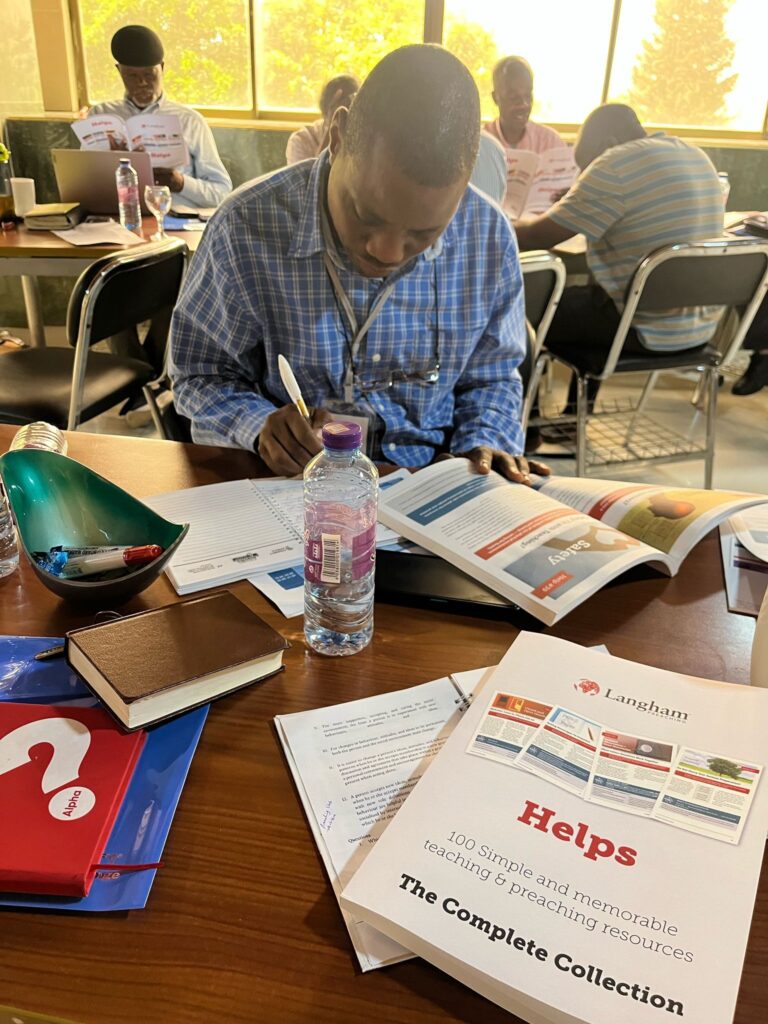
The workshop was delivered by members of the Langham Preaching Africa team, with their particular specialisms, such as:
- Moving from a teacher-centred approach to a learner-centred approach when facilitating groups (Mercy Ireri)
- Essential content to deliver and organising groups (Emeka Egbo)
- Nurturing accountability as leaders (Victor Obeng)
- Context-specific application (Armand Dzadu)
- Further invaluable insights (Femi Adeyele)
It was wonderful, as a Western supporter of Langham, to see this ministry being led and delivered entirely by an African team. It is not a ‘parachuting in’ of others, but the continent’s own leaders training fellow Africans with unique and contextualised understanding of the variety of issues.
This model is then replicated by the Facilitators themselves; they don’t rely on external Langham staff and others to come to train trainers of preachers. They are envisioned to identify, recruit and train other local leaders to deliver Langham content in their local contexts.
I heard again and again a resolution to train up local people for local ministry contexts in a way that is sustainable over the long-term.
Some of this is very bespoke: what may work in rural Malawi may not work in the same way in war-torn South Sudan. But we discussed the general principles and practicalities of how these Facilitators can multiply the work where God has called them to serve.
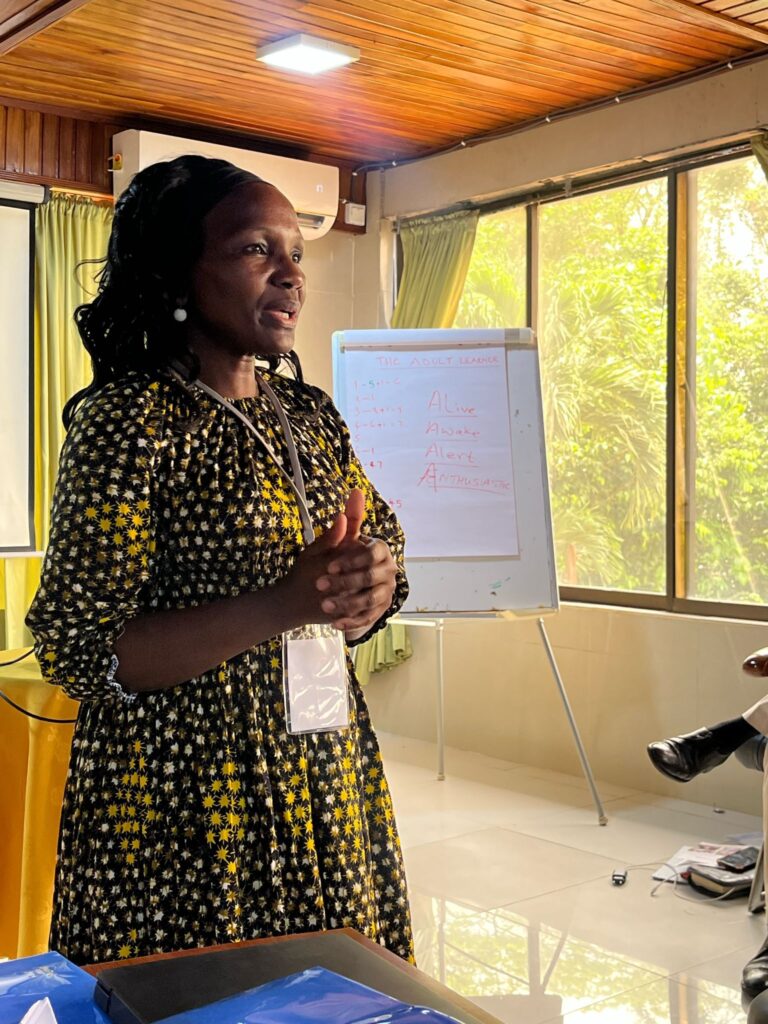
Reputation of Langham on the ground
I was amazed to repeatedly hear how well received Langham is by a wide variety of denominations and churches. One bishop from Nigeria, and another from DR Congo, for instance, told me that they require all their clergy to undertake all three levels of Langham preaching training.
Similarly, a pastor from Malawi shared how two pastors in the Church of Christ denomination attended one of the ushurikas (Preaching Clubs for pastors to give feedback for one another’s sermons) and found that it revolutionised their preaching. The senior bishop of that Church saw the difference, he asked them, “Where did this come from?” and he went with them to an ushurika. After that, this bishop said he will now send all his ministers to ushurikas!
Yet another participant told me that in parts of South Africa many Anglican churches will not grant a preaching license to laity unless they’ve been through Langham. The convictions at the heart of Langham – that the people of God mature by the Spirit of God as the Word of God is faithfully taught and lived out – are being respected more and more, because the fruit from such preaching is so unmistakable.
Cultivating Christlike Character
It was thrilling to hear from participants the enthusiasm with which biblical preaching is being received, because of the clear impact it has on individuals. The purpose of expounding Scripture faithfully and clearly is not simply to teach a text, but to seek the transformation of the lives of those listening.
As Christ is proclaimed through all of Scripture, people meet him personally and in time become more like Him!
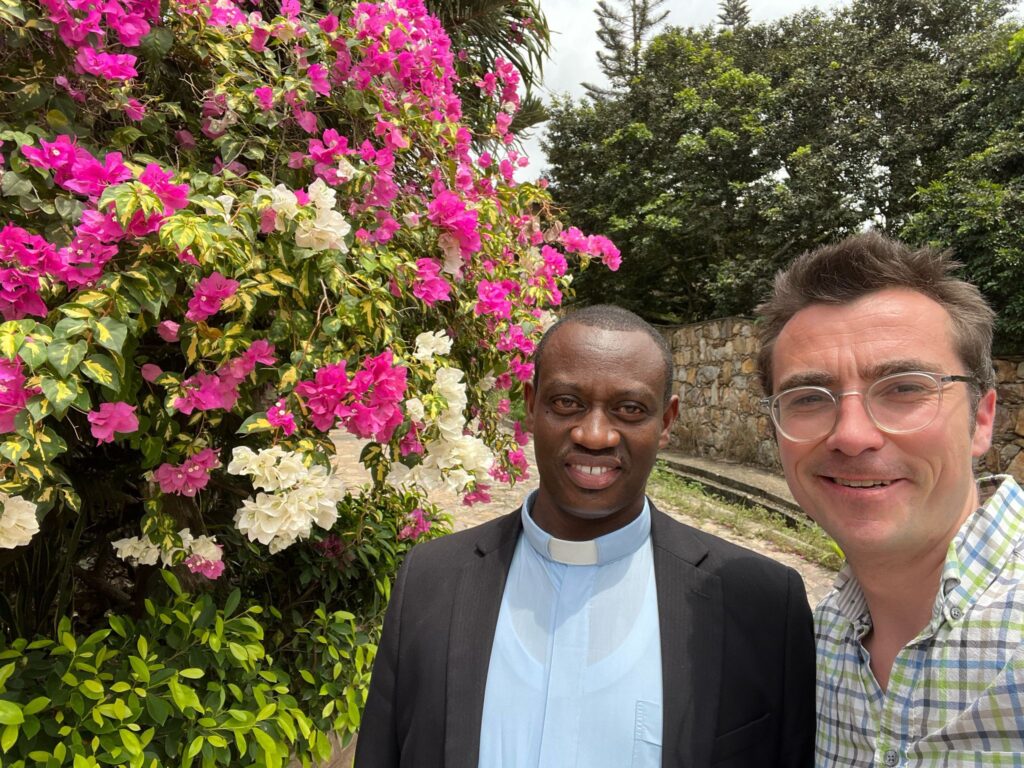
I was so humbled at the way Langham emphasises that, even before this impact on others, it is the preacher’s own character and growth in Christlikeness that is so important.
For instance, in the group and self-evaluation form used by preachers in the ushurikas, a key question asked of the preacher is, ‘What impact did the preparation for this sermon have upon you?’ We had opportunities over the week to practise this.
On one day Femi himself modelled this as, after he gave a ‘model exposition’, a fellow Langham staff member led us through the evaluation process. What became clear to the group in this discussion is that in such settings, we must start with the listeners’ evaluation of the sermon, not the preacher’s self-evaluation.
This is partly because often as preachers we have many blind spots, but also because it emphasises that we want to be ‘learner-centred’ in evaluating our preaching. We must ask not simply whether we thought we taught the text well, but crucially, whether our listeners engaged and learned well.
This is a humbling experience for the preacher, and Femi shared how in many cultures on the continent it can be rare for the ‘big man’ to be receptive to, let alone seeking of, feedback. But we saw it modelled wonderfully.
The Lordship of Christ in the Public Square
I was struck by how concerned so many were in the wellbeing of each other’s home nations. This included the politics, socio-economic inequalities, and the regular unrest in many of the countries represented.
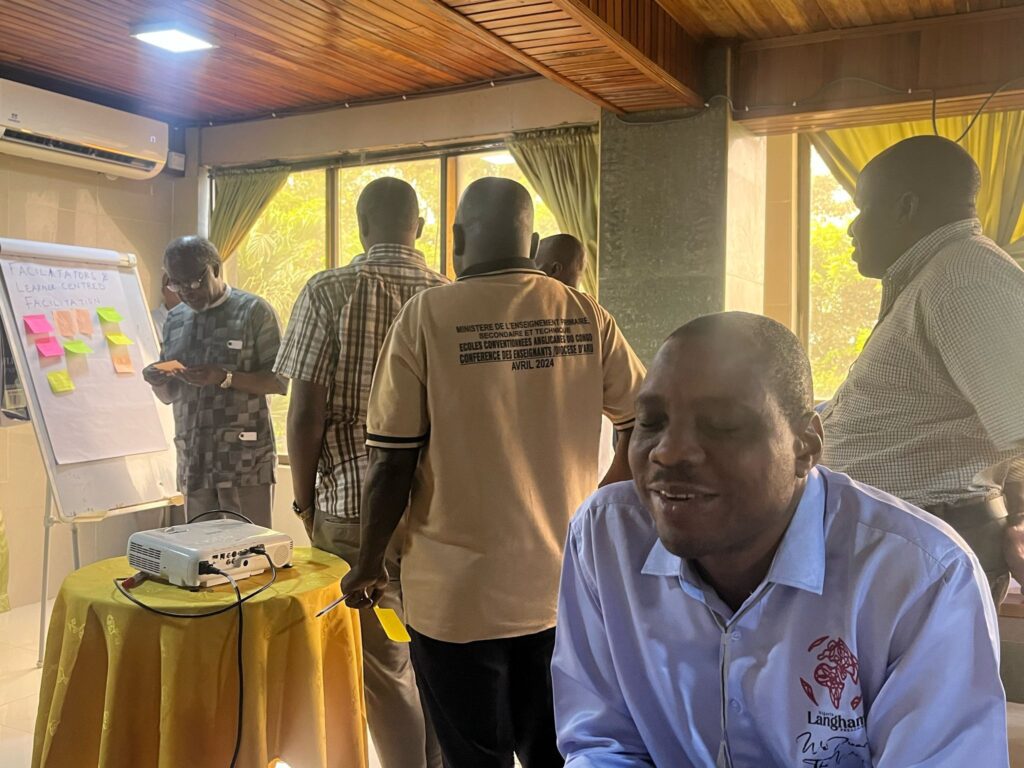
With the ongoing conflict in DRC, famine in South Sudan, corruption in governments, or illegal gold mining in Ghana itself, the challenge remains for the gospel to penetrate the culture more deeply.
Just as in the UK church we need to heed the call of whole-life discipleship, so too does the Global Majority church, to live out our faith Monday to Saturday and see all of life under the loving lordship of Jesus.
Indeed, Victor said in multiple occasions, and at random times, “Jesus is still Lord.” Yet two things in particular struck me about the Langham participants’ response to this so-called ‘sacred- secular divide’ and their longing for Jesus’ Kingdom to have more sway in the public square.
Deep, tangible sadness
The first was their sense of heartfelt lament at the issues facing both their own countries as well as issues common to many nations in Africa. There was deep, tangible sadness at the injustices, natural disasters and political murkiness – not expressed in complaining, but in crying out to God for His mercy.
The second was their conviction that so much of the answer to these wider national issues is found in the local church, when she is mobilised and envisioned by biblical preaching, to then permeate society with the light and saltiness of Christ.
As Chris Wright has said, “It is not so much the case that God has mission for the church, as that God has a church for his mission in the world. Mission was not made for the church; the church was made for mission – God’s mission.”
It was inspiring to see how these Langham participants were gripped with the conviction of the link between God’s unstoppable mission in the world and our frail preaching.
These women and men are convinced that the faithful preaching of the Scriptures has, by the grace of the Spirit, the power to transform lives and so in turn impact communities and society for Christ.
I was left humbled by the extent of their Kingdom ambition for the public square, and the simplicity of the means of that being ambition realised, namely the Word being preached!
Conclusion
It was an absolute privilege to be a small part of this week in Ghana. These reflections, I pray, will work themselves out in our own little patch of God’s worldwide harvest field in South London.
With the shift of vibrant, biblical Christianity in recent years moving towards the Global South, we pray for God to not only bless Africa through Langham Preaching, which he is undoubtedly doing, but from Africa to the very ends of the world.
And may we do so confident not merely in Langham itself but ultimately in the Lord Himself – the One who has promised to be with us always, to the very end of the age (Matthew 28:20).
Since Ed’s visit, Langham staff member Francisca Ahwring has visited to speak at St Mark’s, Mitcham.
For more info visit St Mark’s Mitcham’s website.
Look out later this year for our appeal, when we’ll be raising funds to train more preachers across Africa.
